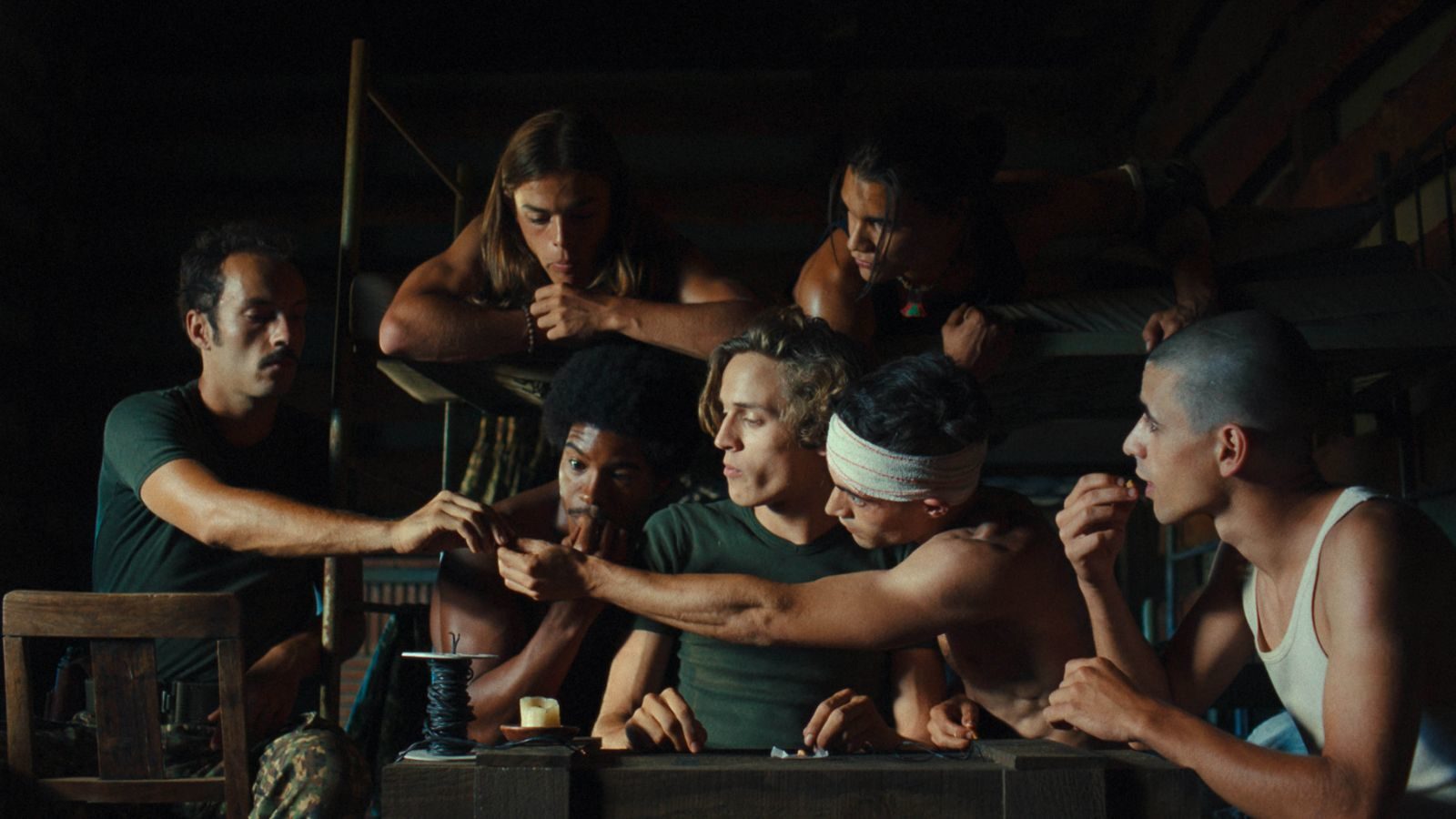It’s tough when you want to like a film a little more. The idea and spirit is present in Tommy Guns, but an overwhelming air of academicism––something that’s sadly begun infecting art cinema in the past decade, its films made more and more by directors self-conscious of the festival circuit tics and requirements––leaves it hard to commend overall.
There’s an intriguing setup: the film takes place in 1974, near the end of the African country Angola being reclaimed from Portugal by insurgent guerrilla forces. Placing us in the middle of proceedings as the colonizer military fights a losing battle, we hone in on the inner workings of an Angolan village. An overly naturalistic make-out scene early in the proceedings, followed by a shocking murder, and then (naturally) a 27-minute-in title-card drop brought worries I was watching Friedberg / Seltzer’s newest spoof Locarno Movie. That said, some skillful edits and camera placements (it’s rare to see a movie that realizes feet are as important as hands) keys one in it’s not a total amateur at work. Directed by Carlos Conceição, who’s been active since 2010, the film overall has the unfortunate feeling of a junior director figuring out and struggling to make their style and bounty of ideas totally cohere.
One such gambit employed by Conceição is a bifurcated narrative, clear as soon as a new set of soldier characters emerge into the story. The group is made up of a bald-headed brutish colonel (Gustavo Sumpta) and the quite photogenic, even shaggy-haired group of grunts he leads. While stationed in Angola and operating under a mission that even they don’t know the true objective of, victims of the war on the other side soon begin to rise from the dead, interrupting Beau travail-ish proceedings.
But Tommy Guns never quite pushes its scenario to, say, Day of the Dead. Certainly the politics and set-up would make Romero proud, and its old-school ghoul makeup at least brought a smile to this writer’s face. One wishes there was actually a more palpable sense of danger, as if veering into horror is more an ironic gesture on the filmmakers’ part than anything––not that more overt violence in the intestine-ripping territory is necessary to make this genre pivot land. The repeated zombie-film image of a hand emerging from a grave rings as a tired postmodernist flourish when the It’s About the Legacy of Colonialism thematics are kind of obvious from the start. Tommy Guns‘ attitude towards horror is more prevalent when, in the middle of the picture, two soldiers hide in their beds like little boys at the sound of something spooky in the night. The idea of a moralist ghost story to be read under the covers with a flashlight isn’t so bad, but it gets lost under so much art-film ostentation. One hopes this isn’t a crisis of cinema that persists.
Tommy Guns plays at New Directors/New Films and opens on April 12.

